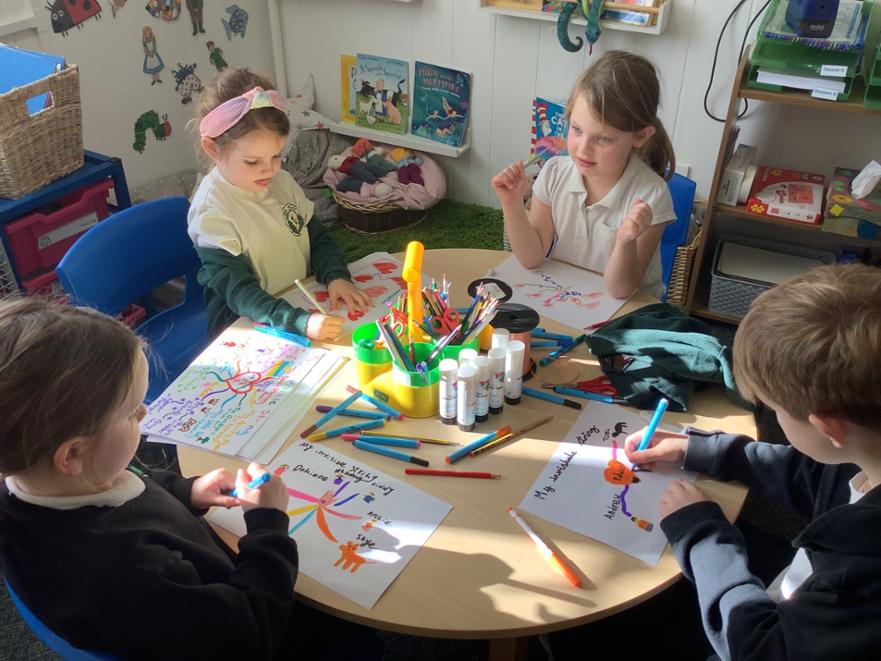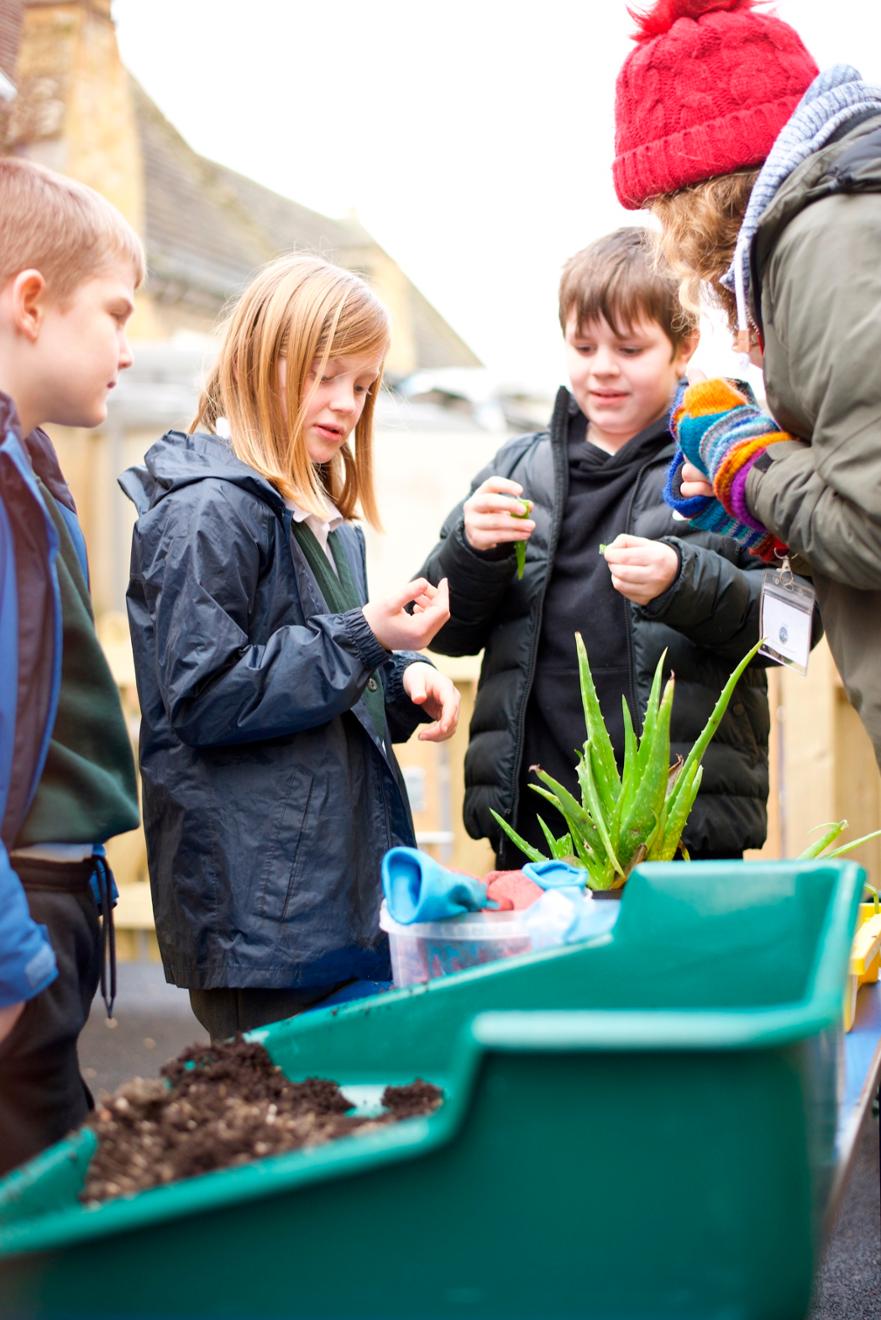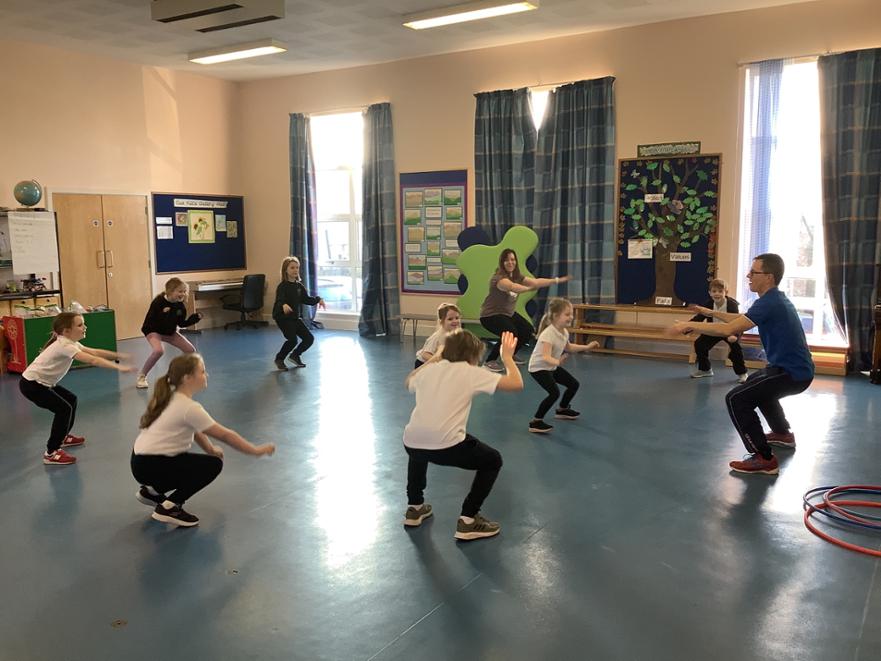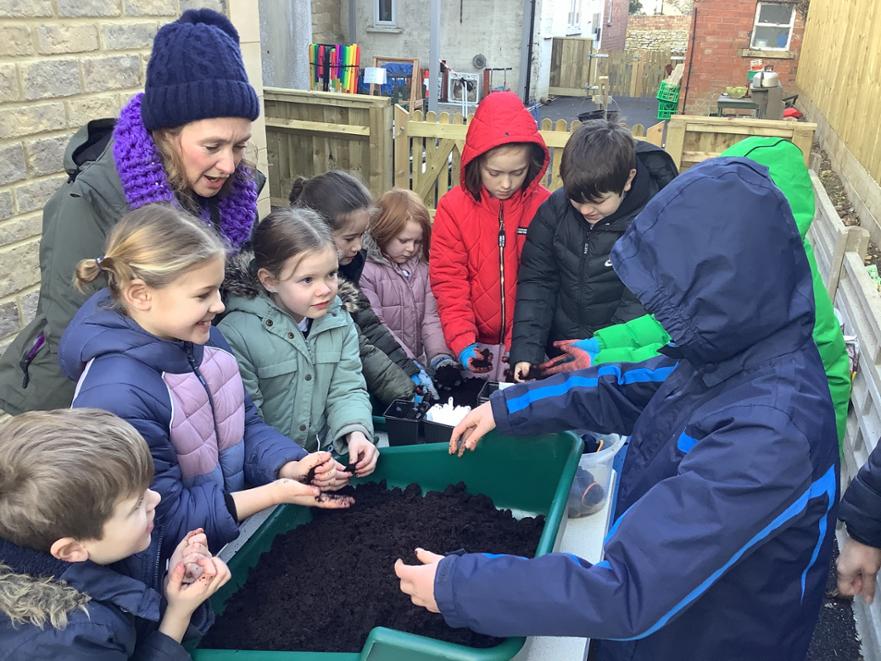Thrive at Oak Hill
The Thrive Approach
At Oak Hill, we have Thrive embedded within our whole school ethos. It is a specific way of working with children that helps to develop their social and emotional wellbeing. It supports them in becoming more self-assured, capable and adaptable. At the heart of the approach lies the understanding that children’s behaviour represents a form of communication. If we can recognise and meet those needs then children are able to flourish and learn.
As a school, we want all our pupils to flourish - "Jesus said, ‘I have come that you may have life in all its fullness’"
(John 10:10)
What is Thrive?
The Thrive Approach is a dynamic, developmental, trauma-informed approach to meeting the emotional and social developmental needs of all children and young people. It is informed by recent developments in neuroscientific research, and is underpinned by a theoretical base in child development theory, attachment theory and research into creativity, play and the arts.
It is designed to support children with their emotional and social development to enable them to engage with learning. Early identification of emotional development needs builds resilience and reduces the risk of mental illness.
Each child is a unique person, constantly developing and learning in different ways and at different rates. The Thrive Approach can identify if our children have experienced any ‘gaps’ in their emotional development and give us the tools needed to best support them. Through doing so, Thrive enables us to make sure all of our pupils have the support they need to reach their full potential.
By using Thrive we will
- Develop a holistic approach to support children and young people’s mental health and wellbeing.
- Provide early identification and effective support for children who are experiencing emotional, social or behavioural difficulties.
- Provide an environment for children to safely express and explore strong feelings, which are creating barriers to learning.
- Develop supportive relationships between peers, and between children and adults in school.
- Support children to regulate and self soothe leading to resilience, academic progress and positive relationships.
- Provide children with strong foundations that will carry them through into adulthood.
Our Thrive Room
Our Thrive room provides the children with a calm, relaxing, safe haven where they can enjoy their session using their tailor-made plans with one of our registered Thrive practitioners. This is also, where ‘drop in’ sessions can take place and is open to all children who feel in need of a listening ear to support them with their mental wellbeing through the school day.
What is a Thrive Action Plan?
A Thrive Action Plan is a selection of specific activities tailored to support a child's identified social and emotional learning targets. The activities are one-to-one and in small groups. The sessions use play and arts-based activities designed to build the child's confidence and to help the child become more resilient and resourceful; form trusting, rewarding relationships; be compassionate and empathetic; and be able to overcome difficulties. They might include using sand trays, puppets, cooking, the use of different arts and crafts, exploring difficult situations through role-play or projects focusing on the child's interests.
Our Thrive Practitioners
Miss J Attwood
Mrs J Edwards
Cookie
Thrive Assessment Process.
The Thrive process uses Thrive-Online to enable the school to identify the age-related needs of groups of children and recommends strategies and activities designed to meet those needs. Every child in the school has access to Thrive and this process begins with a whole class screening, where the class teacher answers a series of questions about each child in the class. This screening identifies any
children who would benefit from a more detailed assessment from one of the qualified Thrive practitioners, who then create a targeted action plan, specific to the child’s individual needs. Thrive-Online enables the child’s progress to be tracked over time, so that plans can be adapted to meet the children’s changing needs. The plan can also suggest activities that the child can do at home to work together with families to support them through any difficulties they may be experiencing and to allow a consistent approach.
The Free Thrive Parent toolkit loaded with Thrive resources and activities that can be used at home can be found at the following link
https://www.thriveapproach.com/who-we-work-with/parents-carers/






